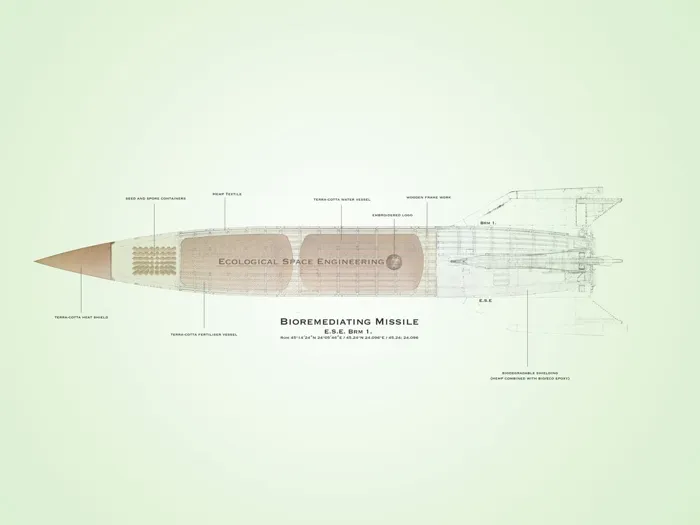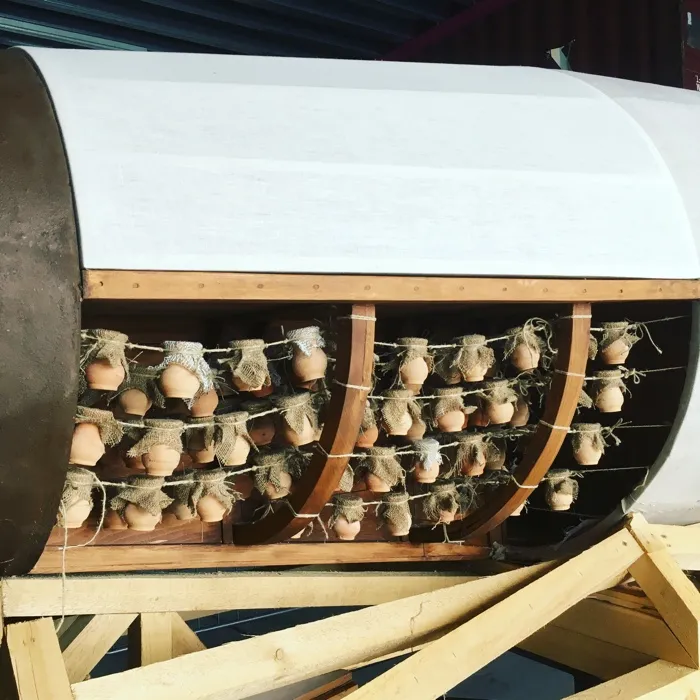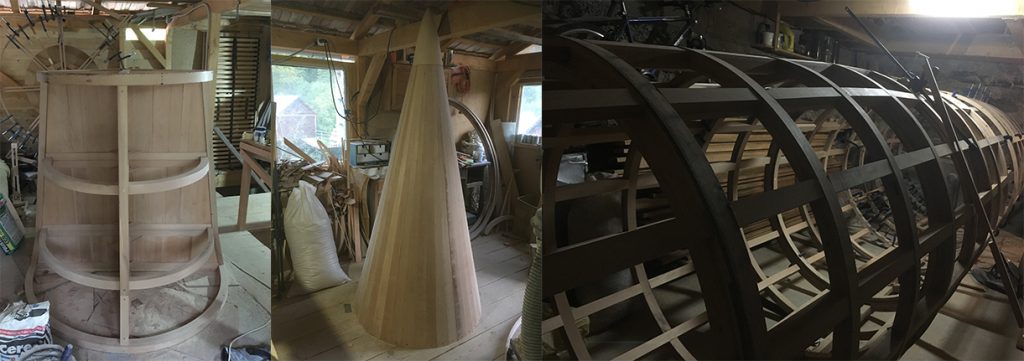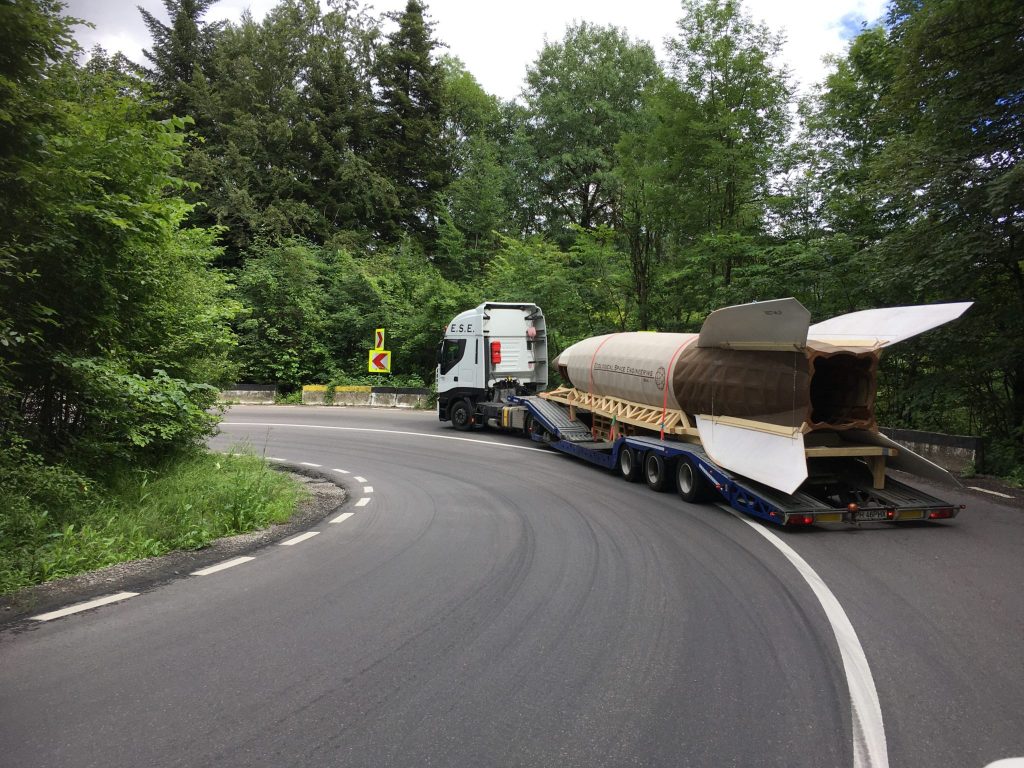Artist Interview with Jos Volkers
In the Artist Interview Series, we highlight this year’s Social Art Award winners. The Social Art Award is a biennial award organized by the Institute for Art and Innovation based in Berlin. Artists from all over the word get a chance to share their visionary projects. Drawing on the concept of social art, the IFAI believes that art can fuel transformation in society. The 2021 award revolved around ‘New Greening,’ meaning that the applications should focus on new ways to (re)green the planet. As such, it aimed to tackle environmental issues such as loss of biodiversity and resource saving. This year, 700+ artists were inspired by the New Greening theme and shared their prospects for a greener future. Their projects enabled the public to envision new, sustainable, and green ways of living.
The Dutch artist Jos Volkers was awarded the ‘Most Provocative’ – Special Price. Jos obtained a Masters degree from the Interactive Media & Environment Department at the Frank Mohr Institute in Groningen, Netherlands. Making nature the main subject in his projects, Jos founded Ecological Space Engineering. Within this fictitious company, he created the ‘Bioremediating Missile’ (2020). It is a replica of an historical war missile, except for the fact that it is build out of biodegradable materials such as wood, jute, clay, and loam. The inside is filled with essential seeds, spores, water and nutrients that are able to restore a part of the ecosystem on Europe’s continent. While transporting the missile from Romania to the Netherlands, the artist aspired to raise awareness about environmental issues. Using the highway as his performance space, he amazed road takers with his unique transportation of a rocket filled with seeds. During this interview, Jos reflects on this performance, its impact and tells us more about future projects he is currently working on.

Generating discussion about the environment
What does the New Greening Project mean to you and where does your artwork fit into the conversation? What do you think is the role of art in sustainable transformation?
“The word New Greening reflects on many things. I mainly like to look at the positive projects that I see around me, but often I see doubtful and misleading factors such as the involvement of capitalist influences. This misleading factor somehow represents human error in perception and the desire for new technologies is a case in point. The project entitled ‘Bioremediating Missile’ is all about human error. The aim of my fictive company entitled ‘Ecological Space Engineering’ to do something good for the future of our planet, contains a bitter aftertaste. The Bioremediating Missile — a fully biodegradable (positive) weapon that is able to renew the ecology of the European continent — seems beautiful and something to be euphoric about. But does it work? Or can it be launched? It’s huge and heavy! Only the transport from Romania to the Netherlands would already outweigh its possible benefits.
Although the concept needs to be symbolically understood, the question arises how to make people aware: how can you bring a topic such as climate change, which is resulting in an ecological crisis, under attention? Is it by provocation? Using the European motorways as a stage for a performance worked, not as good as I would have liked, but I never saw so many surprised faces together.”
What do you think is the role of art in sustainable transformation?
“I think that art can help to change people’s perception and eventually alter habits in their daily lives.”

A scene of confusion
Can you talk about the collaborative aspect of your art? What were your inspirations and how does community influence the perspective of your piece?
“I transported the ‘Bioremediating Missile’ with the designation of Ecological Space Engineering from Romania to the Netherlands. It was open to be seen by all road users pedestrians and any other casual spectator and I wanted to create a reaction, a story or fake news story around my enterprise. However, I still have no idea what these people might have thought.”
Did you face any shortcomings when turning the vision of your work into reality? If so, could you explain it?
“The most important limitation was time, space, money and to plan everything. This was difficult, especially because I built the Missile in another country. Some practical things didn’t work out, but I was able to solve them. So, I did not really face any limitations.”

To what extent do you see your work bringing different meanings to the New Greening vision? What type of conversation does it introduce with respect to our future goals as a society and regarding sustainable transformation?
“We can do so many things for our environment and ecosystems, some of these solutions are easy and very effective. I believe that the ‘Bioremediating Missile’ increased awareness by the way it was constructed, by what it stands for, and by its ability to provoke. It raised awareness of bioremediation to support existing ecosystems and to create new healthy ecosystems. Some of the traditional building principles I used to construct the Missile are less harmful for our environment. If we consume local grown vegetables, meat and other nutrients, it is totally unnecessary to import so many things.”

Resolving human deconstruction
What do you wish to let the viewer know about your work that might not come out explicitly? What do you hope to inspire with your artwork?
“While most government space agencies spend their money to explore space and to find life on other planets, we as a non-government space agency use our finances to support life on Earth. In our perspective, life on Earth should be nourished and restored and – above all – protected against human mismanagement. This is how the collaboration between Ecological Space Engineering and Atmosphere Remediation Centres (A.R.C.) started. With the Bioremediating Missile-program, we investigate the possibilities to maintain and store ecosystem assets such as seeds, spores, micro-organisms and minerals.
A.R.C. is developing Nature Oriented Aquatic Hovercrafts (NOAH’s), which will float in Earth’s atmosphere on a high altitude, filtering CO2 and carrying Brms. This enterprise is one of the most intriguing developments within the Bioremediating Missile-program. By the process of filtering C02, NOAH’s will produce fuel, which is mainly stored and shipped to outer space docs. A part of the produced fuel stays on-board in case of turbulence or malfunction of the aquatic system that propels these hovercrafts. In this way, NOAH’s can be stabilized and brought back into position.
These outer space docs function as hubs for space exploration purposes. With this invention, we are able to finance our Bioremediating Missile program because governmental organizations mainly focus on exploring the boundaries of space.”
Deconstruction versus construction
In ‘Bioremediating Missile,’ Jos Volkers is playing with the opposites of construction and deconstruction. Since the V-2 rocket was originally used as a war weapon for strategic bombing and to defeat the enemy, the missile obtained the objective of deconstruction. Although Jos’ missile is no a real weapon that aims to harm others, it does refer to human violence. His work points to the deconstruction of planet Earth’s ecosystem by humans. In response, the ‘Bioremediating Missile’ could be seen as a radical solution for the disruption of the planet: a missile that can (re)construct Europe’s entire ecosystem. By using a violent weapon for a good cause, the artist establishes a curious paradox which generates confusion in the minds of random spectators. As such, the concept of a seed bomb provokes some interesting questions: how effective is this seed bomb? And would it be more efficient to develop a missile with seeds to restore Europe’s ecosystem than to distribute and plant the seeds by human hand? These questions demonstrate Jos Volkers’ premise of raising awareness about the pressing environmental issues of the 21st century.
Read more about his projects on the website of Jos Volker’s company Ecological Space Engineering.
– Interview by Antje Jacobs
